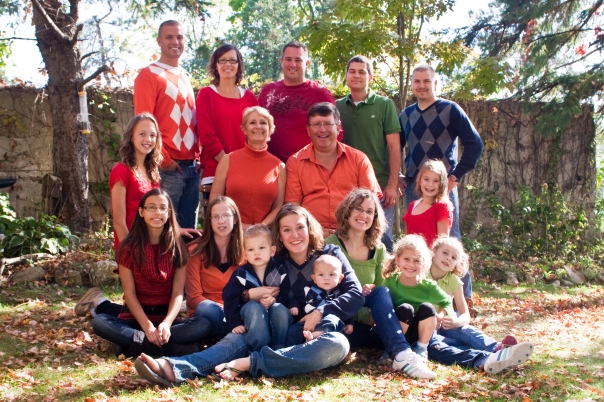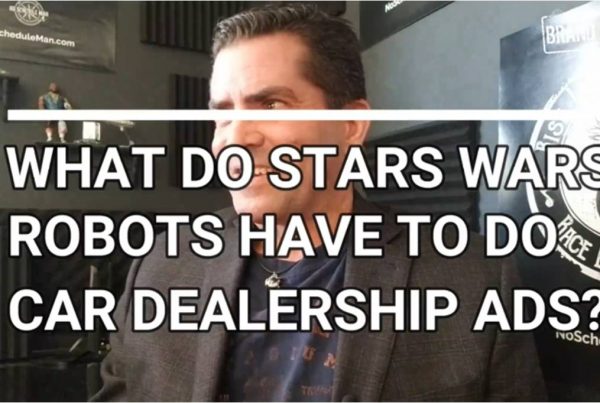I’ve been fortunate to get to know a great many interesting and inspiring people. I’m grateful to have learned a lot from each of them.
One of those people is Dan Balch.
 A man of family and faith, Dan has been a mortgage broker for eighteen years. He cheerily refers to himself as “Dan the Mortgage Man.” One visit to his website (www.bankhostage.com) and you’ll see that Dan Balch is a person who both knows his stuff and has fun while helping people with one of the biggest decisions of their lives.
A man of family and faith, Dan has been a mortgage broker for eighteen years. He cheerily refers to himself as “Dan the Mortgage Man.” One visit to his website (www.bankhostage.com) and you’ll see that Dan Balch is a person who both knows his stuff and has fun while helping people with one of the biggest decisions of their lives.
Though his expertise as a mortgage planner goes back almost two decades, Dan has enjoyed many unique experiences in both business and in life that have helped shape him into the very likable and interesting person he is today. From real estate to marine biology and reptile road shows to helping countless people have the home and lifestyle of their dreams, Dan has met each challenge with a quick smile and an open heart.
Family has always come first for Dan. He and his wife, Gail, have been happily married for over thirty years. In that time, they’ve touched the lives of many young people, taking in and caring for pregnant teens in support of the Crisis Pregnancy Center. They have also built a happy family that includes six children and six grand children.
When you meet with Dan, it becomes quickly apparent that he brings the same level of care and compassion to his clients that he has applied to every other area of his life.
Here is my conversation with Dan Balch:
Kevin: Listening to you talk about family makes me feel like asking you what it was like for you when you were a kid? Did you have siblings?
Dan: Oh, gee whiz. Well, I have an older brother and younger sister. Two parents. My father just passed away about two years ago, but up to that point, great family. It was great growing up. We didn’t have a lot of money, but we spent time together. I only have great memories of growing up. That’s probably why I am the way I am. I’m a pretty easy going guy. My father was a jokester. I got my sense of humour from him.
Kevin: You mentioned not having a lot of money but still having a great time and great recollections of that time.
Dan: The problem is that we think that money solves our problems. We think that money gives us things that we need. And on a temporal basis, sure. It gives you food, it gives you other things. But it doesn’t give you the love. It doesn’t give you the satisfaction or the emotional things that a good family does. We get so caught up with trying to make money, which fuels our ego and a lot of other things, but really with the kids, instead of buying all these electronics and things, they really just want to spend time with you. They want to be able to ask you any question. They want you at home.
Kevin: You used the word ‘ego.’ Ego often is screaming at you, but that’s maybe not the voice you want to be listening to as much.
Dan: I think you’re more successful when you’re always looking outward, not inward. Meaning, you’re always trying to help other people, rather than help yourself. I think you get more out of helping people than with anything you can do for yourself, by buying stuff or doing stuff.
Kevin: There is the word ‘help,’ and there is another word you’ve been very specific about: the word ‘care.’ Talk about your interpretation of what care means, as opposed to – or in addition to – ‘help.’
Dan: Some people I can’t help, but I can care for them. I can give them good sound advice. I can put them on the road to success. So, in our case, fixing their credit or something like that. Just looking after them and trying to put their best interests before my own. It’s the old saying of, people don’t care how much you know until they know how much you care.
Care is really more than just helping. It’s looking after people. It’s wanting to see them successful and wanting to see them do well also and get good information so they can make their own decisions.
Kevin: You also talked about the kind of work that you and I do, where if you don’t get deals, you don’t get paid. I’ve long felt that everybody should have the opportunity to be an entrepreneur and that it would really change your perspective on a lot of things, but that’s another conversation entirely.
Dan: (laughs) Oh, yeah.
Kevin: By that thought, you almost feel like you should be beating the bushes even harder. But it goes back to caring about people and just trusting that the results will come.
Dan: Most salespeople are transactional. They’re thinking, “I need to do a transaction,” which is usually a sale. I think there’s more to it. We’re only on this earth one time around. So if you can help someone or care for someone or put them on a different path that’s better, I think you’re far better off and they’re far better off than worrying about that one sale that may or may not happen. It’s a better way to live.
I feel much better if I talk to someone and put them on a path to getting their credit fixed so that in six months instead of renting, they can own their own house. Now, do they come back to me? A lot of them do. Some don’t. But I know inside that I’ve helped these people. And that’s good. That’s what life’s about.
Kevin: I’m going to change topics on you. I didn’t know you’d gone to school for marine biology. What led you to that (marine biology) and then away from it?
Dan: To be honest with you, it was just kind of cool.
Kevin: You’re just like George Costanza (from the TV show “Seinfeld”): “You know I always wanted to be a Marine Biologist!”
Dan: (Laughing) Yeah. I always loved the water and it sounded like a fun thing to do. But when I graduated, there just weren’t very many jobs and because I’m a home guy and love being around my parents and my kids, I didn’t really want to move away from everybody.
Kevin: Then what happened?
Dan: I got married right out of university (U of Guelph) and needed a job. So I started actually selling real estate. I enjoyed it but I was so young. I think I was one of the youngest guys on the board at the time. I did it for about four years. I didn’t like being on call 24-7, especially with a young family. It just didn’t work.
Well, we had always had pet stores, so I started into pet stores for a number of years. I owned a traveling reptile show for about ten years and did shows all across Canada with that. We went on the road and I brought the kids along. We spent the summers together.
And then, actually a client of mine had a sick tortoise. He knew I was in the real estate business back in the day and said, “I’m looking for new mortgage brokers.” I told him I didn’t want to be a mortgage broker, and that I couldn’t charge fees to people for doing that. And he said, “It’s just changed. Now we get a finder’s fee from the mortgage company, so we work hard for the client and somebody else pays us.” And I thought, “That sounds good.” But again, I still liked what I was doing.
But then, we went away on holidays and we were down in Florida for about a month. When we came back, we’d had a break-in at our house. They stole everything, left my doors wide open and all my animals that I had from the reptile show froze. So there I was with no money. I used up all my credit on my holiday.
Well, my client happened to call me and said, “My tortoise is sick.” And I said, “Ask me to come work for you again,” and he said, “Well, come work for me!” And I said, “Okay. Sounds good.” And I started working for him, and that was about 18 years ago.

Kevin: From what you’ve described, pretty much since university, it doesn’t sound as if you’ve ever had a straight-ahead, salaried 9-to-5 type gig?
Dan: Never. It’s not in my DNA to work for someone. I think I have to be my own boss.
Kevin: Not everybody’s wired to be able to deal with that, because they need that feeling of safety, which in itself I think is a little bit of a fallacy.
Dan: It is.
Kevin: I want to talk a little bit more specifically about what you’re doing, and that aspect of helping people and caring for people because, other than what they do with their family, you’re dealing with what I think is the most impactful thing in their lives. I’ve got to feel that there’s a very high level of trust, because it’s one of the most important decisions people are ever going to make.
Dan: I’ve had people where I’ve gone through everything with them, and I ask, “Do you have any questions?” They say, “Well, no.”
Well then, I’ve done my job. Or I’ve had someone say, “Isn’t there something else I’m supposed to do here?” And I’ll say, “Nope. I’ve taken care of everything.” That’s the way it should be. It should be, “I’ve taught you everything you need to know. You’ve made an informed decision and we’re going to go on from here.”
That’s going back to what we talked about earlier: being transactional. I think that’s where I differ, though I know a lot of other brokers are that way too. I can’t say that it’s just me. But I think that with the banks, they are very transactional and they don’t say, “We want to be your bank for your whole life” or “We want to look after you, we want to take care of you.” Well, no. They make billions of dollars in profit because they’re charging you all kinds of money.
I’ve got clients that I dealt with 18 years ago that I’m still dealing with. A lot of them now have paid off their mortgages and their kids are getting mortgages from me because they know and trust me. And that’s who you want to deal with. You want to deal with someone you know and trust and you have a connection with.

Kevin: I know that, for me as I get older and my kids get older, I look for those opportunities. I become more patient. There have been times in my life when I was younger when I almost wouldn’t want to engage in a high level conversation with an expert in their field like you, because I wouldn’t want to hear what I knew I needed to hear. I just wanted to get on with it and be able to check that thing off my list. But now, I want to be able to know. And if there’s an issue, I want to be able to call, say, Dan.
Dan: Well, look at Home Hardware. Why is Home Hardware still around? I mean, their prices aren’t cheaper than Home Depot or Rona or Lowe’s or whatever. They’re actually more money. But they have that service. They have that old time kind of, “Come in and we’ll look after you and we’ll figure that problem out together” type of thing.
Some of these other small shops that are still around … why are they still around? Well, they’re still around because they’ve gone back to, “Let’s have a relationship here, so you can call me up. I’ll give you some good information.” Now, what’s that worth? Well that’s the problem. Some people think it’s not worth anything and that’s why they’ll get a mortgage off the internet because it’s the lowest rate. The only quantitative thing they can look at is, “Who’s got the best rate?” Well, who has the best pre-payment privileges? Who has the best penalties to get out of this mortgage? Am I locked in? You’ve got to know.
You have to pick up that phone and you have to call a professional.
Kevin: And you’re going to be there. It’s a face. It’s a name. It’s a relationship. It’s not just a transaction and then, “See you later.”
Dan: That’s right
Kevin: There is real peace of mind with that.
Dan: You don’t have to know everything in life. You can’t possibly. But you have to have good people around you that do. So in this case we’ll put the client as the center of the spoke. I’m just one part. I’m their mortgage expert.









Recent Comments